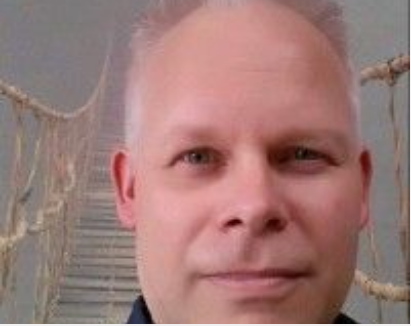AUT in the Brunel Office: Pascal's story
Culture and Values

Culture and Values
There are about 200,000 people with autism in the Netherlands, for whom it is not always easy to find a suitable job. Therefore the Brunel Foundation introduced AUT in the Brunel Office on World Autism Day 2019: people with autism are invited to share their story and have open and transparent conversations with Brunel colleagues to talk about the difficulties they face in daily life and in finding and retaining work. One memorable story was from Bruneller Pascal Rinket, who works as a Product & Process Engineer. Here, he shares his story.
I think it’s important for employers to keep an open conversation. Not just about autism, but any difficulty an employee might face in their job. I think an open dialogue, coaching and guidance is something everyone with or without autism benefits from on the work floor

Pascal Rinket
Product & Process Engineer – Venlo, Netherlands
From 1993 to 2002 I worked for Brunel, at the time still Multec, in Venlo as a Product & Process Engineer. During those 9 years, I was always contracted at one client: a Dutch manufacturer of high-quality printers. They built all, often very complex, parts and components themselves. My job was in equipment engineering, the department responsible for setting up the in-house production facilities and organising the turn-key machinery needed. A fantastic assignment!
The client I was working at hired a lot of Brunellers, which always gave you a group of people to socialize with. You’d eventually get to know everyone through events and drinks organized by Brunel. Everyone felt part of Brunel, a real community. I was happy to work for Brunel, and proud of the work I did at the client. When the economy turned down in 2002, some hard decision had to be made and Brunel and I parted ways on good terms.
Later in my life, I received the diagnosis of autism. Hearing that, you realize it’s something you’ve always suspected. A feeling of being slightly different than most. I’ve lived my whole life with it perfectly fine, but it’s nice to know where some of the things you’ve had difficulty with come from and being able to know where to look.
My way of approaching and solving problems has always been quite focused. I’m very perfectionist. Something that has helped me greatly in my technical field, but also costs a lot of energy. People immediately have a certain idea when autism is mentioned, but what most don’t realise is that it occurs in many shades and forms. I only found out I had autism later in my life, and it hasn’t changed me.
As I grew in my career and gained more responsibilities, I had to navigate office politics more and more. I worked at another employer where I had to lead a team. I noticed the job became less about the substance, and more about social-political dynamics. I’m very direct, which could turn into a pitfall for me. But you learn, adapt and others think everything is going well. But it takes up a lot of energy, keeping up those fronts. Eventually, I had to take a step back and recover.
I think it’s important for employers to keep an open conversation. Not just about autism, but any difficulty an employee might face in their job. We’re not all good at the same things, but oftentimes we have to keep up appearances that we can do anything. I think an open dialogue, coaching and guidance is something everyone with or without autism benefits from on the work floor.
That’s also one of the reasons I’ve gotten back into contact with Brunel. I recently saw that the Brunel Foundation is actively pursuing awareness and understanding about autism and work. I had an open conversation with the Foundation and agreed to assist in internal workshops about autism, once the corona situation allows it of course.
I was impressed by the story of the Brunel Foundation and their sincere motivation. It’s important for employers to stay open-minded about all diverse people. I’m happy my story can help contribute to this goal and even better that it’s at an employer where I still look back fondly on!
And who knows, I might return to Brunel for another project in the future.
The Brunel Foundation aims to help future, young and senior professionals with Autism increase their job opportunities.
"I am proud that I am a go-getter and can think in opportunities. I dare to be vulnerable and ask for help if necessary. As a result, I can also see my autism as a strength, and can also mean something to others."
Connecting Specialists to Pioneering Projects